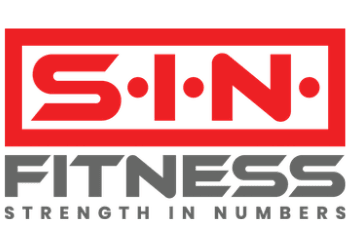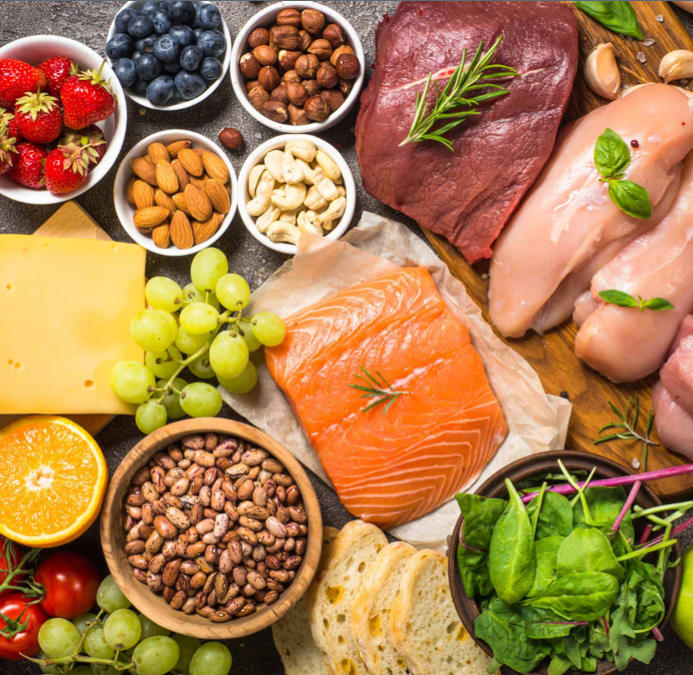
Understanding Macros & Calories
Figuring out how much to eat or whether tracking macros is right for you can seem tough, and even more so when everyone and their mother’s friend’s neighbor’s plumber’s high school teacher has advice to give you, too. The truth is that the answer can be different for different people, but assuming you don’t have any disease or illnesses that affect your hormones or metabolism, it doesn’t have to be super complicated.
After reading this article, we hope to help you understand that there is no “one” right way, and that once you adopt good nutritional habits as part of your daily routine, it’s much easier to manipulate your body-weight if doing so is a goal.
What’s your goal?
If you are happy with your weight and just want to eat for optimal performance, then it’s more important to know what to eat and drink and what things to avoid and then observe your results. If you start gaining weight, simply cut back a bit on how much you’re eating, and (you guessed it) observe your results. If instead you begin losing weight and that is not your goal, just add a bit. Again, observe your results and adjust. Making small changes to an already healthy diet is enough to effect change. The key here is to START by eating the right things and eliminating the problematic foods and/or beverages (this most definitely includes a high consumption of alcohol). That should be the first goal, and for many that is enough to do the trick. But let’s be honest. Most people reading this right now are not thinking, “boy, I’m just SO happy with my weight and I really just want to eat for optimal performance”. This is a good time to tell you that regardless of your goals, the rules are really the same. It’s still about knowing what things to eat and drink, and what things to avoid. But we can still dig deeper.
If you have more than 30-40 lbs. to lose then generally it’s less about counting calories and tracking macros and more about cleaning up your nutritional habits. Just by removing sodas, juices, refined carbohydrates, fast food, desserts, baked goods, etc., and by making sure to include more protein, healthy fats, veggies, and complex carbohydrates, you’ll start seeing changes. And yes, exercise helps, too! In fact, for some people with varying degrees of insulin resistance (type II diabetics or those with prediabetes) exercise is mandatory to heal the body.
For those with less than 30 lbs. to lose, and you’ve already cleaned up your nutrition and have stopped seeing results, well than you could benefit from counting your calories and/or tracking your macros. To be clear, it’s not that counting calories doesn’t work for everyone when they do it right (meaning, eating the right amounts of the right things), it does, it’s about preventing people from burning out from constantly focusing on food, calories, and macros... too much of that can lead to an unhealthy relationship with food and make it hard for you to change your habits and achieve lasting results.
How many calories should you be consuming?
Every “body” is different, however, you can use one of the many free online calorie calculators to estimate your needs as a starting place, just make sure you’re using one that requires that you know your bodyfat % so you know it’s more accurate for your individual needs. If you do not know your bodyfat % ask a coach or trainer at your gym to test it for you or see a Nutritionist or Dietician.
What’s next?
Now that you know whether you should be counting calories or focusing more on what to eat and what to avoid, let’s talk about that...
Protein
Protein is the building block of muscle and is paramount to the diet of an active individual. As a general guideline, your protein intake should stay steady- around 1 gram of protein per pound of lean mass (or 0.8-1.0 gram per pound of body weight). Protein intake should remain relatively constant no matter what, especially in times of calorie restriction for fat loss. Women should aim to get about 30 grams of protein (roughly 5 oz., or a serving size that is a little bigger than a deck of cards) at each of your three main meals of the day, men should shoot for about 40 grams (roughly 7 oz., or a serving size closer to a deck and a half of cards).
Good sources of complete protein: chicken or turkey, leaner beef, some dairy, eggs, fish and shellfish, pork loin, and protein powder.
Carbohydrates
Since everyone reacts to carbs a little differently there’s no magic number. The important thing to remember about carbohydrates is that some of them can be broken down faster and more easily than others. Fast-digesting carbs like refined sugar are called simple carbs. The problem though, is that eating these carbs can spike your blood sugar quickly, and they aren’t a sustainable form of energy. And because these carbs are so readily usable, they also get stored as fat easily. Complex carbs like oatmeal (yum), however, take a little longer to digest, don’t spike your blood sugar as dramatically, and often contain more fiber than their simple counterparts. If you stick to complex carbs like these instead of eating mostly refined carbs like doughnuts or cake, your energy levels will stay more consistent throughout the day and you’ll store less fat. As a rule of thumb, for those who are considered obese, those who regularly consume high amounts of sugar or refined carbohydrates, or for those who have a history of problems with their blood sugar, keep your total daily carbohydrate consumption between 70 -100 grams.
Good sources of carbohydrates: Sweet potatoes, quinoa, lentils and beans, oats, berries, green veggies, brown rice, squash, and some low-sugar whole-grain products.
Fats
When it comes to fats, aim to get about 30 percent of your daily calories from natural dietary fats.
Good sources of healthy fats: Avocados, nut butters, olive oil, coconut oil, nuts, olives, some dairy, and oily fish (like salmon).
What have we learned?
Ultimately the name of the game is eating more of the good foods while eliminating the bad. Just doing this alone will be enough for many to benefit from lasting results. For those that require a little more specificity or assistance, ask a professional for advice. Do not look to Google for the answer or ask your friend about how she lost 20 pounds in one week by only eating foods that begin with “Z”, or what the latest cleanse is, or any other quick fix. Our best advice to save you years of frustration, to help you see results, and to help you feel your best is to start by making permanent changes to what you eat and drink on a regular basis.


